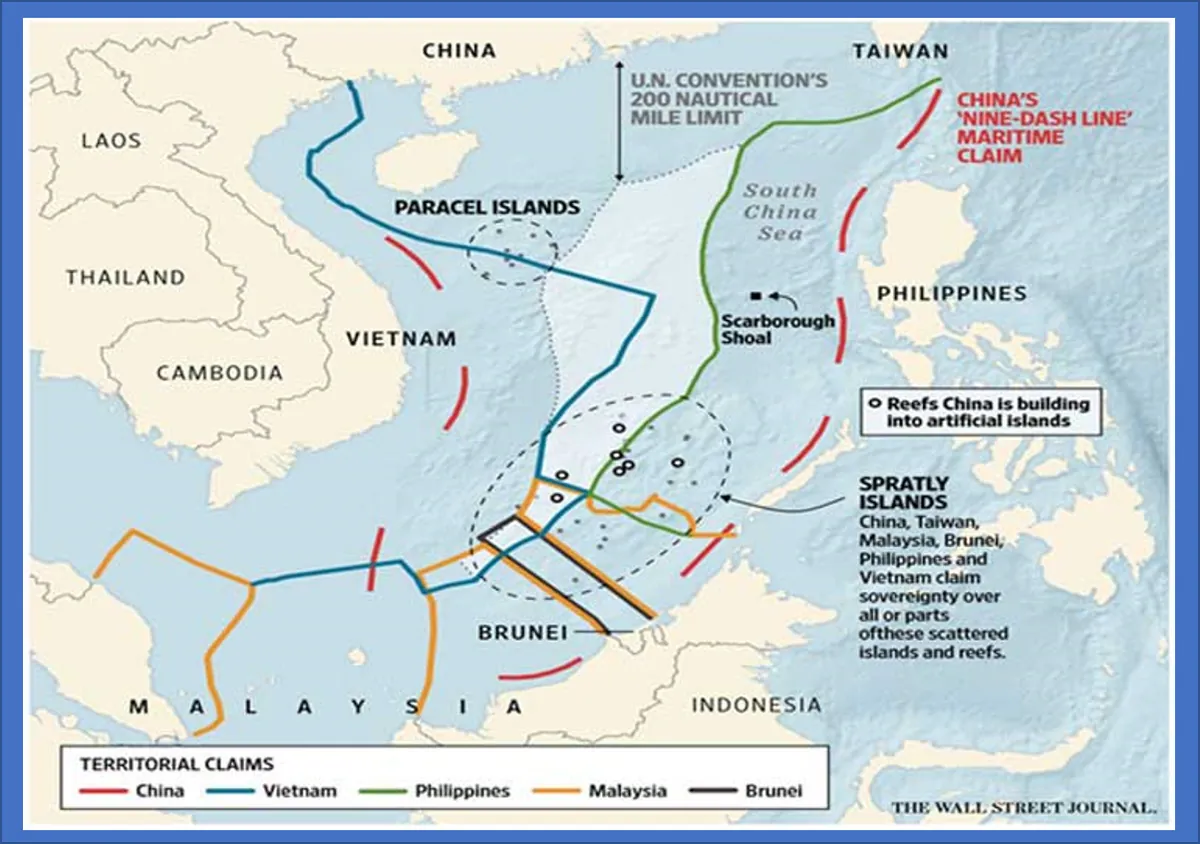In a recent development, China has expressed strong disapproval of the European Union's comments regarding an incident in the South China Sea. The event in question occurred on August 31, 2024, involving vessels from China and the Philippines.
China's mission to the EU issued a statement emphasizing that the European bloc is not a party to South China Sea issues and lacks the authority to comment on them. The Chinese representatives urged the EU to maintain objectivity and fairness, cautioning against potentially harmful rhetoric and actions.
"The European Union is not a party to the South China Sea issue and has no right to point fingers on the issue."
The incident that sparked this diplomatic exchange was a collision near Sabina Shoal, marking the fifth maritime confrontation between China and the Philippines in the past month. Both nations accused each other of intentionally ramming coast guard vessels in the disputed waters.
The South China Sea, covering approximately 3.5 million square kilometers, has been a longstanding source of regional tension. China claims almost the entire area based on its "nine-dash line" map, despite a 2016 ruling by the Permanent Court of Arbitration against these claims. The sea's strategic importance is underscored by the fact that over $3 trillion worth of global trade passes through it annually.
In response to the incident, the EU issued a statement on September 1, 2024, condemning what it termed as "dangerous actions by China Coast Guard vessels against lawful Philippine maritime operations." The EU expressed concern that such incidents endanger maritime safety and violate international law regarding freedom of navigation.
China, however, views the EU's stance as unwarranted interference. The Chinese mission stated that the EU's repeated emphasis on freedom of navigation issues does not serve the bloc's interests or international credibility.
The ongoing disputes in the South China Sea involve multiple nations, including Vietnam, Malaysia, and Brunei. The region is rich in natural resources, with an estimated 11 billion barrels of oil and 190 trillion cubic feet of natural gas. Additionally, it serves as a critical habitat for endangered species like sea turtles and dugongs.
As tensions persist, the Association of Southeast Asian Nations (ASEAN) continues its efforts to establish a Code of Conduct for the South China Sea. Meanwhile, the United States has conducted "freedom of navigation" operations in the area, further complicating the geopolitical landscape.
This latest diplomatic exchange highlights the complex nature of the South China Sea dispute and its potential to impact international relations beyond the immediate region.
